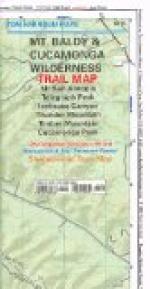“There, I’ve got the jack rigged up!” he whispered presently. “Step in now, Neal, and I’ll open it. Have you got your rifle at half-cock? That’s right. Be careful. A fellow would need to have his hair parted in the middle in a birch box like this. Remember, mum’s the word!”
The lad obeyed, seating himself as noiselessly as he could in the bow of the canoe, and threw his rifle on his shoulder in a convenient position for shooting, with a freedom which showed he was accustomed to firearms.
At the same time his companion stepped into the canoe, having first touched the dark object on the pole just over Neal’s head. Instantly it changed into a brilliant, scintillating, silvery eye, which flashed forward a stream of white light on a line with the pointed gun, cutting the black face of the pond in twain as with a silver blade, and making the leaves on shore glisten like oxidized coins.
The effect of this sudden illumination was so sudden and beautiful that the boy for a minute or two held his rifle in unsteady hands while the canoe glided out from the bank. An exclamation began in his throat which ended in an indistinct gurgle. Remembering that he was pledged to silence, he settled himself to be as wordless and motionless as if his living body had become a statue.
From his position no revealing radiance fell on him. He sat in shadow beside that glinting eye, which was really a good-sized lantern, fitted at the back with a powerful silvered reflector, and in front with a glass lens, the light being thrown directly ahead. It was provided also with a sliding door that could be noiselessly slipped over the glass with a touch, causing the blackness of a total eclipse.
This was the deer-hunters’ “jack-lamp,” familiarly called by Neal’s companion the “jack.”
And now it may be readily guessed in what thrilling night-work these canoe-men are engaged as they skim over Squaw Pond, with no swish of paddle, nor jar of motion, nor even a noisy breath, disturbing the brooding silence through which they glide. They are “jacking” or “floating” for deer, showing the radiant eye of their silvery jack to attract any antlered buck or graceful doe which may come forth from the screen of the forest to drink at this quiet hour amid the tangled grasses and lily-pads at the pond’s brink.
Now, a deer, be it buck, doe, or fawn in the spotted coat, will stand as if moonstruck, if it hears no sound; to gaze at the lantern, studying the meteor which has crossed its world as an astronomer might investigate a rare, radiant comet. So it offers a steady mark for the sportsman’s bullet, if he can glide near enough to discern its outline and take aim. There is one exception to this rule. If the wary animal has ever been startled by a shot fired from under the jack, trust him never to watch a light again, though it shine like the Kohinoor.
As for Neal Farrar, this was his first attempt at playing the part of midnight hunter; and I am bound to say that—being English born and city bred—he found the situation much too mystifying for his peace of mind.




